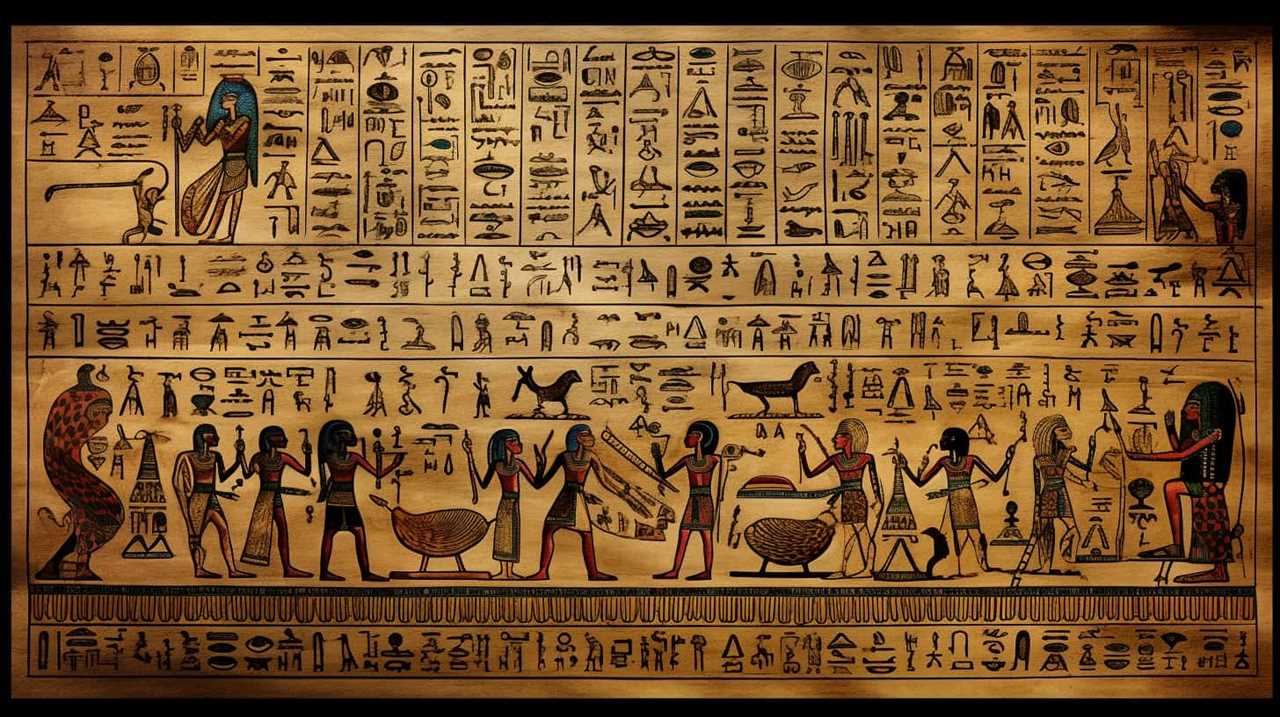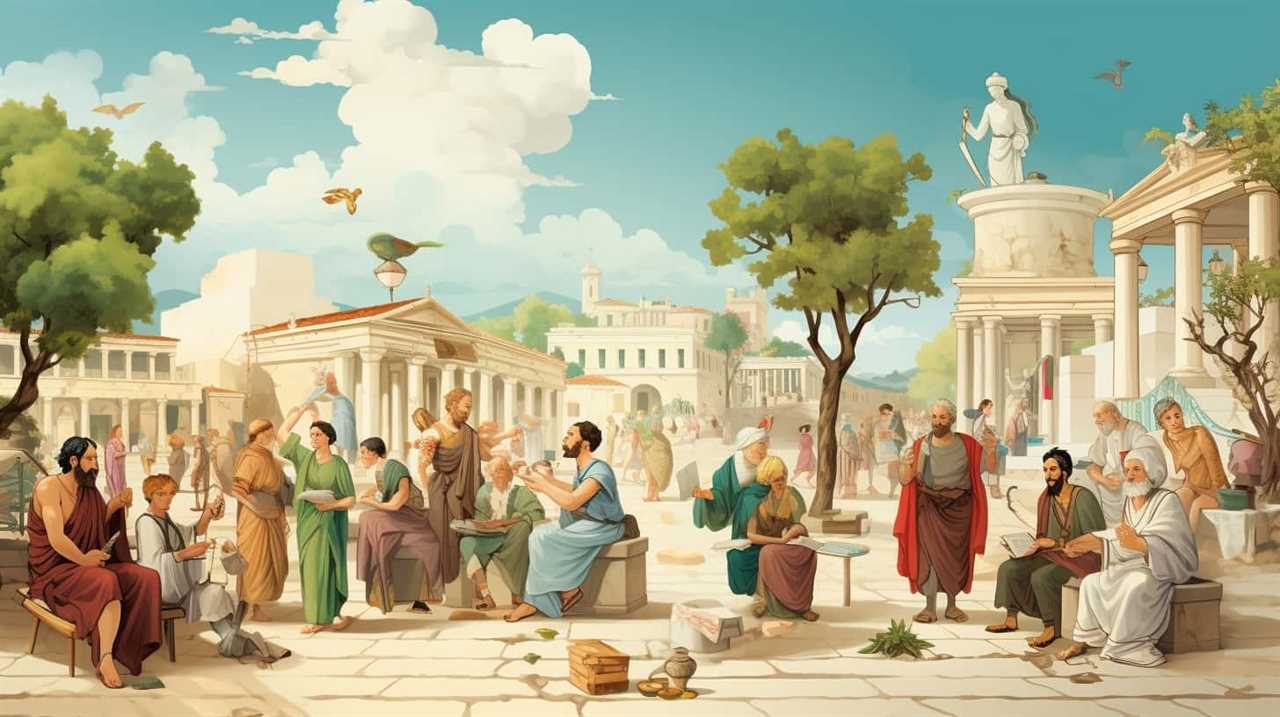Immerse yourself in “Stoic Wisdom: 14 Life-Changing Quotes,” your guide to self-mastery! We are delving into profound Stoic principles that will assist you in navigating life’s turbulence with composure and resilience.
Through the lens of ancient Stoic thinkers, we uncover invaluable insights that shape our understanding of the world and our place within it. From mastering our desires to embracing the present moment, each quote serves as a guiding light on our path to self-discovery and personal growth.
Join us as we explore the power of self-discipline, the role of reason in decision-making, and the pursuit of wisdom. Let us face life’s challenges with courage and find solace in the timeless wisdom of the Stoics.
Key Takeaways
- Stoicism offers insights into finding inner peace amidst life’s chaos.
- Self-discipline is essential for personal growth and achieving success.
- Acceptance of the present moment leads to inner peace and contentment.
- Resilience is necessary for overcoming adversity and bouncing back from setbacks.
On the Nature of Things
In contemplating on the nature of things, we gain a deeper understanding of our place in the universe. The philosophy of stoicism offers profound insights into finding inner peace amidst the chaos of life. Stoicism teaches us to focus on what’s within our control and surrender to the natural order of the world.

Stoics believe that the key to finding inner peace lies in accepting the inevitable and embracing the present moment. By understanding that we can’t control external events, we can free ourselves from unnecessary worry and anxiety. Instead, we can focus on cultivating virtues such as wisdom, courage, and self-discipline.
The philosophy of stoicism encourages us to detach ourselves from external outcomes and place greater emphasis on our own character and actions. By aligning our thoughts and actions with reason and virtue, we can find tranquility and contentment regardless of our circumstances.
In practicing stoicism, we learn to see challenges as opportunities for growth and self-improvement. Rather than being overwhelmed by adversity, we can approach it with resilience and equanimity. Stoicism teaches us to view setbacks as temporary and to maintain an unwavering commitment to our principles.
Mastering Our Desires
In mastering our desires, we strive to control our cravings and tame our inner desires. It’s a practice that requires self-discipline and introspection, as we seek to align our wants with our values and goals.

Controlling Our Cravings
To achieve mastery over our desires, we must learn to exercise control through the deliberate choice of our actions and the conscious regulation of our impulses. Overcoming temptation and managing our impulses are essential skills in this pursuit. Here are some key insights to help us on this path:
- Recognize the power of our cravings: By acknowledging the strength of our desires, we can better understand the need for control.
- Practice self-awareness: Cultivate mindfulness to observe our impulses and understand their underlying causes.
- Develop discipline: Train ourselves to resist immediate gratification and make choices aligned with our long-term goals.
- Find balance: Strive for moderation rather than indulging in excess, as this promotes a healthier relationship with our desires.
Taming Our Inner Desires
By acknowledging the strength of our desires, we can better understand the need for control and work towards taming our inner desires.
Our inner desires can often lead us astray, causing us to act impulsively and make choices that aren’t aligned with our long-term goals.
However, through self-control, we can harness the power of our desires and use them to drive us towards success and fulfillment.

It’s important to recognize that our desires aren’t inherently bad, but it’s our responsibility to manage them effectively.
Developing self-control requires discipline and practice. We must learn to pause and reflect before acting on our desires, considering whether they align with our values and long-term goals.
Acceptance of the Present Moment
Let’s explore the concept of acceptance of the present moment and how it can bring us peace.
Embracing the now means letting go of worries about the past or future and fully immersing ourselves in the present experience.

Embracing the Now
In our pursuit of Stoic wisdom, we find solace and strength in fully immersing ourselves in the here and now, embracing the present moment with unwavering acceptance. By accepting uncertainty, we free ourselves from the burden of trying to control the uncontrollable, allowing us to find peace within.
In the present moment, we discover that joy can be found even in the midst of challenges and hardships. We learn to appreciate the beauty and simplicity of life, finding contentment in the present rather than constantly striving for the future.
Embracing the now means letting go of regrets and anxieties, focusing our energy on what we can control in this very moment. It’s in this acceptance that we begin to find true peace within ourselves.
As we continue our journey, let’s explore the next topic of finding peace within.

Finding Peace Within
As we delve into the topic of finding peace within through the acceptance of the present moment, we realize that embracing the now allows us to cultivate a sense of inner tranquility and contentment. Inner harmony and finding serenity are key aspects of achieving this state of mind. When we accept the present moment, we let go of regrets about the past and worries about the future. We understand that the present moment is all we truly have, and by fully immersing ourselves in it, we can find peace. This acceptance brings a deep sense of calm and allows us to appreciate the beauty and richness of each moment. It is in this state of acceptance that we can truly find serenity within ourselves.
| Inner Harmony | Finding Serenity |
|---|---|
| Letting go of regrets | Embracing the present moment |
| Releasing worries | Cultivating a sense of inner tranquility |
| Appreciating the beauty of each moment | Finding contentment within ourselves |
The Power of Self-Discipline
With the power of self-discipline, we can transform our lives and achieve remarkable success. Self-discipline is the key to unlocking our full potential and living a life of purpose and fulfillment. It’s the ability to control our impulses, emotions, and actions, even in the face of challenges and temptations.
Here are four important insights on the power of self-discipline:
- The importance of self-control: Self-discipline allows us to resist instant gratification and make decisions that align with our long-term goals. It helps us stay focused and committed, even when faced with distractions or setbacks.
- Harnessing inner strength: Self-discipline isn’t about denying ourselves pleasure or being overly strict. It’s about tapping into our inner strength and using it to overcome obstacles and achieve success. It empowers us to break free from our limitations and become the best version of ourselves.
- Building healthy habits: Self-discipline is the cornerstone of building and maintaining healthy habits. It enables us to consistently make choices that support our physical, mental, and emotional well-being. By practicing self-discipline, we can create a positive cycle of success and personal growth.
- Achieving mastery: Self-discipline is essential for achieving mastery in any field. It requires dedication, perseverance, and a willingness to put in the necessary effort and practice. With self-discipline, we can develop the skills and expertise needed to excel in our chosen pursuits.
Finding Tranquility Within
To achieve tranquility within, we must learn to cultivate a sense of inner peace and contentment. In today’s fast-paced and chaotic world, finding inner stillness can be a challenge. However, it’s essential for our well-being and overall happiness. The stoic philosophy offers valuable insights on how we can find peace amidst chaos.

One way to cultivate inner peace is by practicing mindfulness. By staying present in the moment and observing our thoughts and emotions without judgment, we can create a space of calm within ourselves. This allows us to detach from external circumstances and find tranquility regardless of the chaos around us.
Another powerful tool is acceptance. Stoic teachings encourage us to accept the things we can’t control and focus on what’s within our power. By accepting the inevitable ups and downs of life, we can find peace and avoid unnecessary suffering.
Finding tranquility within also involves nurturing a sense of gratitude. When we appreciate the present moment and count our blessings, we shift our focus from what’s lacking to what we already have. This shift in perspective brings about a sense of contentment and inner peace.
The Art of Overcoming Adversity
When faced with challenges, we can tap into our inner strength and resilience to overcome adversity. Life is full of obstacles that can test our mettle, but it’s through resilience and perseverance that we can rise above them.

Here are some insights on the art of overcoming adversity:
- Embrace the struggle: Instead of avoiding or resisting difficulties, embrace them as opportunities for growth. By facing challenges head-on, we develop the resilience needed to overcome them.
- Cultivate a positive mindset: Maintaining a positive attitude in the face of adversity can make a significant difference. It allows us to see obstacles as temporary setbacks and fuels our motivation to keep pushing forward.
- Learn from setbacks: Every obstacle presents a chance to learn and grow. Reflect on the lessons learned from past setbacks and use them as stepping stones towards future success.
- Seek support: Surround yourself with a supportive network of family, friends, or mentors who can provide guidance and encouragement during challenging times. Their wisdom and perspective can help you navigate through adversity with greater resilience.
Embracing the Impermanence of Life
As we navigate through the ever-changing landscape of life, it’s important to find peace in the inevitability of change.
Embracing the impermanence of life allows us to let go gracefully, releasing our attachment to outcomes and expectations.
Finding Peace in Change
Our journey towards finding peace in change begins with embracing the impermanence of life. Life is filled with constant transitions and uncertainties, and it’s in our ability to navigate through these changes that we can find a sense of peace and stability.

Here are a few key insights to help us on this journey:
- Acceptance: Acknowledge that change is an inherent part of life and that resisting it only causes unnecessary suffering.
- Letting go: Release attachments to outcomes and expectations, allowing ourselves to flow with the ever-changing nature of life.
- Presence: Stay grounded in the present moment, focusing on what we can control rather than getting caught up in worries about the future or regrets about the past.
- Adaptability: Cultivate a mindset of flexibility and adaptability, recognizing that change can often lead to growth and new opportunities.
Letting Go Gracefully
Continuing the exploration of finding peace in change, we embrace the impermanence of life by gracefully letting go.
Letting go gracefully is a powerful practice that allows us to release attachments and find inner peace. It’s the art of surrendering to the flow of life, accepting that everything is temporary, and understanding that clinging to things only brings suffering.
By letting go of our desires, expectations, and attachments, we free ourselves from the burden of trying to control the uncontrollable. We learn to appreciate the present moment and find contentment in what is, rather than what could have been or what may come.

Letting go gracefully is a transformative process that leads to liberation, allowing us to live fully and authentically in the ever-changing tapestry of life.
Embracing the Present Moment
We frequently remind ourselves to embrace the present moment, fully acknowledging the impermanence of life. It’s in this embrace that we find inner peace, for we understand that the only moment we truly have is the one we’re in right now.
By embracing the present moment, we let go of attachments to the past and worries about the future. We become fully present, fully alive, and fully aware of the beauty and richness of each passing moment.
Embracing the present moment allows us to cultivate a sense of gratitude and appreciation for the simple joys of life. It reminds us to savor the small moments, to find joy in the ordinary, and to cherish the relationships and experiences that give our lives meaning.

Cultivating Inner Strength
To develop our inner strength, it’s essential to cultivate resilience and fortitude in the face of adversity. Finding inner resilience and developing mental toughness are key components in our journey towards mastering ourselves. The Stoics believed that true strength lies in our ability to navigate through life’s challenges with grace and composure.
Resilience is the capacity to bounce back from setbacks, to adapt and grow stronger in the face of adversity. It requires a mindset that sees obstacles as opportunities for growth and transformation. By cultivating resilience, we become better equipped to handle the inevitable ups and downs of life.
Mental toughness, on the other hand, is the ability to persevere when faced with difficulties. It’s the quality that enables us to stay focused and determined, even in the midst of challenges and setbacks. Cultivating mental toughness allows us to push through obstacles, knowing that success often requires persistence and unwavering commitment.
To develop these qualities, the Stoics advise us to embrace hardship as a necessary part of our journey. They encourage us to view challenges as opportunities for growth and self-improvement. By adopting a mindset of resilience and fortitude, we can cultivate inner strength that will serve us well in all aspects of life.

Living in Accordance With Nature
In our pursuit of a meaningful life, it’s vital for us to align our actions and choices with the natural order of the world. Living in accordance with nature means finding harmony and balance within ourselves and the world around us. It’s about recognizing that we aren’t separate from nature, but rather a part of it, and that our well-being is interconnected with the well-being of the entire universe.
To live in harmony with nature, we must first understand and accept the inherent laws that govern the world. These laws include impermanence, interconnectedness, and the cyclical nature of life. By acknowledging and embracing these truths, we can navigate through life with greater ease and resilience.
Finding balance is another key aspect of living in accordance with nature. Just as nature is in a constant state of balance, we too must strive to find equilibrium in our lives. This means cultivating a sense of moderation, avoiding extremes, and practicing self-awareness. It requires us to be mindful of our thoughts, emotions, and actions, and to make choices that align with our values and principles.
Living in accordance with nature isn’t always easy, but it’s essential for our well-being and fulfillment. It’s a lifelong journey of self-discovery, growth, and transformation. By embracing the natural order of the world and finding balance within ourselves, we can lead more meaningful and fulfilling lives.

The Importance of Virtue
When it comes to living a fulfilling life, virtue plays a crucial role. The Stoics believed that true happiness lies in cultivating moral character and embodying virtues such as wisdom, courage, justice, and temperance.
Virtue and Happiness
One key aspect of Stoic philosophy is the belief that cultivating virtue is essential for our happiness and well-being. The Stoics emphasized the importance of living a virtuous life in order to cultivate joy and find fulfillment. They believed that true happiness isn’t dependent on external circumstances, but rather on our own moral character.
Here are some key points to consider:
- Virtue is the highest good: The Stoics believed that virtue, or moral excellence, was the ultimate goal in life. It’s through the cultivation of virtue that we can find true happiness and fulfillment.
- Virtue leads to inner peace: By living in accordance with virtue, we can achieve a sense of inner peace and tranquility, regardless of the external circumstances we may face.
- Virtue is within our control: The Stoics believed that while we may not always have control over external events, we always have control over our own thoughts, actions, and choices.
- Virtue is its own reward: The Stoics believed that the practice of virtue is inherently rewarding, bringing its own sense of fulfillment and satisfaction.
Understanding the importance of cultivating virtue is the first step towards building a life of moral character.

Cultivating Moral Character?
To cultivate moral character, we must recognize the importance of virtue in shaping our lives. Virtue acts as the foundation upon which we build resilience and make ethical decisions. It is through the cultivation of virtue that we develop the strength to face adversity and the wisdom to make choices that align with our moral compass.
| Virtue | Building Resilience | Ethical Decision Making |
|---|---|---|
| Courage | Allows us to confront challenges and overcome fears | Enables us to make difficult choices in alignment with our values |
| Temperance | Helps us find balance and moderation in all aspects of life | Guides us to make decisions that prioritize the well-being of ourselves and others |
| Justice | Promotes fairness and equality | Guides us to make decisions that consider the rights and needs of all involved |
| Wisdom | Encourages us to seek knowledge and understanding | Helps us make decisions based on reason and rationality |
| Integrity | Fosters honesty and trustworthiness | Guides us to make decisions that are consistent with our principles |
The Role of Reason in Decision-Making
After analyzing the Stoic insights, we firmly believe that reason plays a crucial role in our decision-making process. The role of logic and rational decision-making can’t be overstated when it comes to making choices that align with our values and lead to a virtuous life.
Here are some key points to consider:
- Clarity of thought: Reason allows us to think clearly and objectively, enabling us to assess situations accurately and make informed decisions.
- Objectivity: By using reason, we can detach ourselves from emotional biases and make decisions based on what’s most rational and logical.
- Weighing options: Reason helps us evaluate different options and their potential consequences, allowing us to make choices that are in line with our long-term goals and values.
- Self-reflection: Reason allows us to reflect on our actions and decisions, helping us learn from our mistakes and make better choices in the future.
By employing reason in our decision-making, we can navigate life’s challenges with a clear mind and a sense of purpose.

It’s through the application of logic and rationality that we can make choices that lead to personal growth, fulfillment, and a virtuous life.
Practicing Gratitude and Contentment
Continuing from our previous discussion on the role of reason in decision-making, let’s now delve into the importance of practicing gratitude and contentment in our everyday lives.
Gratitude practices are a powerful tool that can transform our mindset and enhance our overall well-being. By consciously recognizing and appreciating the positive aspects of our lives, we cultivate a sense of gratitude that allows us to focus on what we have, rather than what we lack. This shift in perspective fosters contentment and helps us find fulfillment in the present moment.
Finding contentment isn’t about settling or complacency, but rather about accepting and embracing our current circumstances. It’s a state of mind that allows us to be at peace with ourselves and the world around us. By practicing gratitude and contentment, we learn to let go of unnecessary desires and expectations, freeing ourselves from the constant pursuit of external validation and material possessions.

Incorporating gratitude practices into our daily routine can be as simple as keeping a gratitude journal, where we write down three things we’re grateful for each day. Additionally, we can express gratitude to others through acts of kindness and appreciation. These practices help us cultivate a mindset of abundance and foster a deeper sense of connection with ourselves and those around us.
As we explore the importance of practicing gratitude and contentment, we lay the foundation for the subsequent section on the pursuit of wisdom. By finding contentment in the present moment, we create a space in our lives to seek wisdom and grow as individuals.
The Pursuit of Wisdom
Let’s explore how seeking wisdom can enrich our lives and guide our everyday decisions.
The pursuit of knowledge and seeking enlightenment is an essential endeavor that allows us to grow intellectually and spiritually. Here are some key points to consider:

- Wisdom as a lifelong journey: The pursuit of wisdom isn’t a destination but a continuous journey. It requires a commitment to learning and self-reflection, as well as an openness to new ideas and perspectives.
- Expanding our understanding: Seeking wisdom involves expanding our knowledge and understanding of the world around us. It encourages us to explore different disciplines, engage in critical thinking, and question our assumptions.
- Guiding our decisions: Wisdom provides a compass for our everyday choices. It helps us make sound decisions by considering the long-term consequences, weighing different perspectives, and aligning our actions with our values.
- Cultivating virtue: Wisdom isn’t just about acquiring knowledge; it also involves cultivating virtues such as empathy, humility, and integrity. These virtues guide us in our interactions with others and contribute to our personal growth and well-being.
In our pursuit of wisdom, let’s embrace the lifelong journey of seeking knowledge and enlightenment. May it enrich our lives and guide our everyday decisions towards a more fulfilling and meaningful existence.
Facing Mortality With Courage
Facing our mortality requires courage and introspection as we confront the inevitable finitude of our existence. It is a topic that often evokes fear and discomfort, yet the Stoics teach us that we can face mortality with resilience and find purpose even in the face of death. As Marcus Aurelius said, "You could leave life right now. Let that determine what you do and say and think." This reminds us to live each day as if it were our last, seizing the present moment and making the most of our limited time.
| Stoic Insight | Explanation |
|---|---|
| "Memento Mori" | This Latin phrase, meaning "remember death," serves as a powerful reminder of our mortality. It encourages us to reflect on the impermanence of life and make the most of our time. |
| "Amor Fati" | This Stoic concept translates to "love of fate." It teaches us to embrace our mortality and accept the natural order of things, finding meaning and purpose in every experience, even the difficult ones. |
| "Ars Moriendi" | The art of dying is an important aspect of Stoic philosophy. It emphasizes the need to approach death with grace, dignity, and tranquility, knowing that it is an inevitable part of life. |
| "Moral Autonomy" | Stoicism teaches us to focus on what is within our control, such as our thoughts, actions, and attitudes. By cultivating moral autonomy, we can face mortality with courage and live a life of virtue and integrity. |
| "Meditation on Death" | Stoic philosophers often engaged in meditations on death as a way to prepare themselves for the inevitable. This practice allows us to confront our mortality and develop the resilience needed to face it with courage. |
Facing our mortality can be a daunting task, but by embracing the Stoic principles of resilience and finding purpose in our mortality, we can approach the inevitable with courage and live a meaningful life. The Stoics remind us that death is a natural part of the human experience and that by accepting this reality, we can fully appreciate the preciousness of life. As Seneca wisely said, "It is not that we have a short time to live, but that we waste much of it. Life is long enough, and a sufficiently generous amount has been given to us for the highest achievements if it were all well invested." So let us face our mortality with resilience, finding purpose in every moment, and living a life worthy of our finite existence.
Frequently Asked Questions
How Can Stoic Insights Be Applied to Everyday Situations?
Practical applications of stoic insights can help us navigate everyday challenges with resilience and wisdom. By embracing the stoic philosophy, we can cultivate inner peace, focus on what we can control, and find meaning in the face of adversity.

What Are Some Practical Techniques for Mastering Our Desires?
To master our desires, we employ self-discipline techniques and manage cravings effectively. By understanding our true needs and practicing restraint, we can align our actions with our higher goals and achieve true mastery.
How Can One Cultivate Inner Strength in the Face of Adversity?
When facing adversity, we cultivate inner strength by embracing challenges, seeking growth, and maintaining perspective. By overcoming hardships, we not only build resilience but also discover our true potential and the power within us.
What Are Some Strategies for Living in Accordance With Nature?
Living in accordance with nature requires adopting certain strategies and principles. By cultivating mindfulness, embracing simplicity, and practicing gratitude, we can align ourselves with the natural order of the world and find inner peace.
How Can Stoicism Help Individuals Face Their Own Mortality With Courage?
Facing mortality can be daunting, but stoicism offers us the tools to approach it with courageous acceptance. By embracing the ephemeral nature of life, we can find strength in the face of our own mortality.

Can Stoic Quotes from Different Sources Have a Similar Impact on Daily Living?
Yes, timeless stoic quotes guide our daily living by imparting wisdom and resilience. Whether from Marcus Aurelius or Seneca, their impact remains consistent. These quotes shape our mindset and help navigate life’s challenges. The universal truths within these stoic teachings transcend time and provide enduring guidance.
Conclusion
In conclusion, the stoic insights presented in these quotes offer invaluable guidance for everyday living. Like a gentle breeze on a hot summer day, they bring a refreshing perspective to our lives, reminding us to embrace the present moment, practice self-discipline, and cultivate gratitude.
With their wisdom, we can navigate life’s challenges with clarity and find tranquility within ourselves. So let’s embark on this journey of self-improvement, drawing inspiration from the stoics and embracing a more mindful and fulfilling existence.









